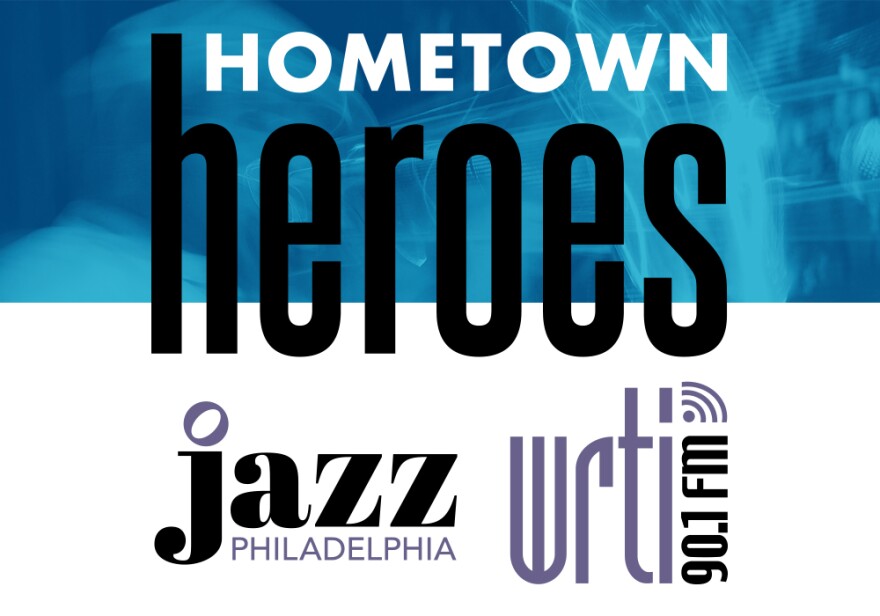When Uri Caine speaks in his deep, low voice, each phrase unfurls with rich, diverse, all-inclusive information. In a fashion, it’s as if the Philadelphia-born pianist and composer is looking to get everything inside his head out, quietly, but succinctly.The same goes for the elegantly eclectic, Modern Creative, jazz-based music he’s crafted, first in Philly clubs, then when he began making records in the 1990s. First, he was a sideman with Don Byron and fellow Hometown Hero Bobby Zankel as a leader with 1993’s Sphere Music. Eventually, he moved through to epically beloved solo albums inventively tackling Mahler, Wagner, and Bach’s Goldberg Variations.
All at once, Caine’s classical training and modal jazz chops issue forth with touches of klezmer, post-bop, Philly soul, Tin Pan Alley stylizations and avant-garde everything. The same algebraic innovation and emotional improvisation that Caine brought to 1999’s Zohar Keter and its focus on Jewish heritage and electronic music is equal to the intensity of his playful, funky, organ-filled excursion with The Roots’ Ahmir Thompson, and with Christian McBride on 2001’s The Philadelphia Experiment, as well as 2021’s brio-filled bop job Catbird with Jon Irabagon, Mark Helias, and Clarence Penn.
Considering his early classical training, it was an uncle’s gift of Miles Davis and John Coltrane albums that spun Caine’s head around to the jazz idiom. “I was like 11 when I got a taste of jazz, and as I got older, it was an evolution.”
Such advancement came with listening to, and playing, in a wealth of Philly jazz clubs as Caine came up. He talks about “lost venues such as the Aqua Lounge, Jewels’ on Broad Street, Just Jazz on Arch Street, Togetherness House next to the Bandbox in Germantown, and Saint Mary’s Church in West Philly,” as well as studying with expatriate French pianist Bernard Peiffer. As Caine was already playing classical pieces, Peiffer stressed taking the motion of harmony and structure in those compositions and breaking them down—it was a door to the faculty and facility of improvisation. Taking those improvisations and writing from the experience became the work of another teacher in Caine’s life, composer George Rochberg at Penn State’s University Scholars Program.

“Bernard was particularly tough, but great, and had a weekly gig at the Borgia Café Tea Room in Headhouse Square,” said Caine, speaking of how the classroom and the barroom interacted. That venue was another circle, as was Trey’s Lounge, to hear Philly Joe Jones and Bootise Barnes. “If you waited until the end of the night, and they tolerated you, you could sit in and play. That focused me, immersed me in music, and gave me insight as to what all these different scenes meant.”
Those scenes still mean everything to Caine. As he tells a story of moving through Philadelphia’s jazz environs of the past, he reveals his own influences, his own diverse set of heroes, and the wealth of elders to look up to, men whose discographies Caine knew by heart, such as Hank Mobley, Odean Pope, and the ever-intense Pat Martino. He also rattles off young contemporaries such as Tyrone Browne and Jamaaladeen Tacuma, who he played with on stage and on albums.
“All these different characters became apparent and different worlds opened up the deeper I went into downtown Philly, playing clubs and sessions,” said Caine. “I found myself, more and more, understanding all the different components of this scene, of the wealth of music from the avant-garde to Philly International. Everyone from Mickey Roker, Bobby Durham, Sun Ra, Shirley Scott, Gerald Price, Sam Dockery, Edgar Bateman, Jymmie Merritt, Johnny Coles, Grover Washington George Crumb, and the Philadelphia Orchestra with the 2 dollar seats at the top of the Academy of Music.” That’s all Caine.
And if you listen closely, every inspiration—and none—is readily apparent in his music.
Jazz clubs, scenes, teachers and mentors aside, Caine—a Manhattanite since the mid-1980s—looks at Philadelphia as the Great Incubator, where every element of the City of Brotherly Love opened yet another door. “The older musicians were tough, but beautiful and supportive.”
Caine doesn’t shy from bringing up the politicized and often tumultuous times he came up in—his father’s interest in the ACLU, the Rizzo years and that Mayor’s hardcore policing policies—and managed to tie it all to his most recent released album, 2019’s The Passion of Octavius Catto, in dedication to the Black Philadelphia activist and teacher whose image stands before City Hall in the “Quest for Parity” memorial.
“People have a love-hate relationship with where they come from,” said Caine. “You carry something in your heart in regard to your origin story, even though your life goes into many different places. I carry everything about this city with me. Of that, I am proud.”

